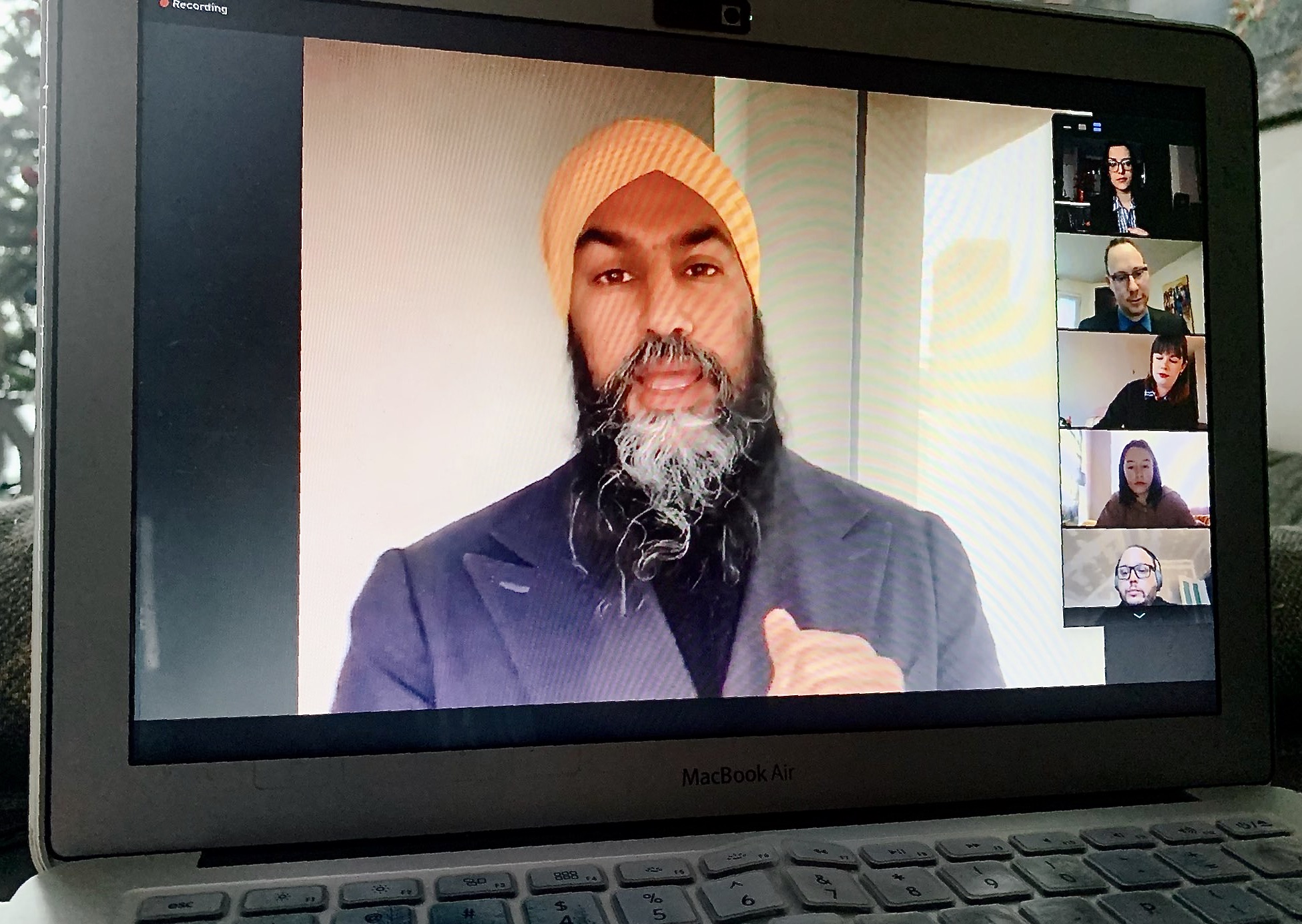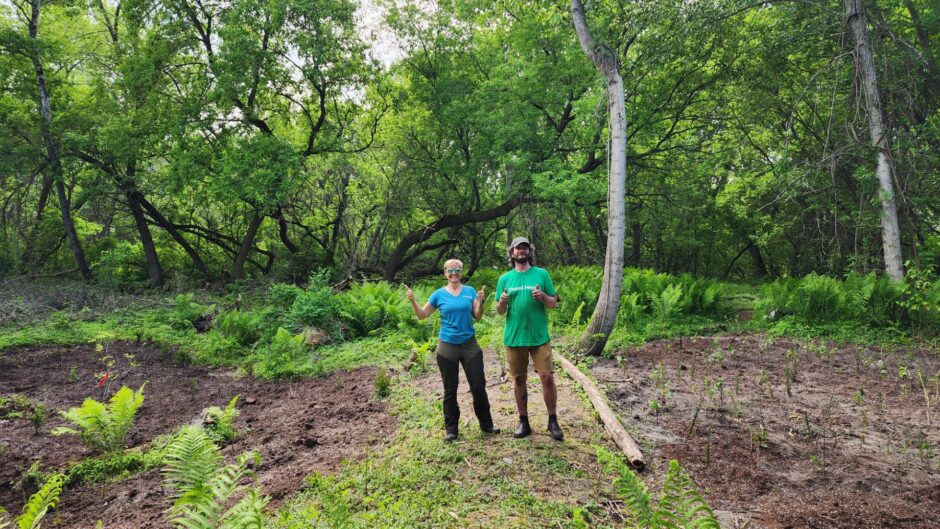Struggles of young people ignored during pandemic, says NDP leader

Federal NDP leader Jagmeet Singh says he believes in “putting money in people’s pockets when they need help,” and when young people need it especially, is now.
“The plight of young people has been ignored during the pandemic,” Singh said during in a press conference over Zoom with Algonquin College journalism students on Nov. 27. “They are one of the hardest hit communities.”
Acknowledging that young people who are starting their careers in a pandemic “will feel the weight of this a lot more than someone who has already established a career,” Singh fielded questions from reporters about how the NDP plans to support young Canadians struggling with issues ranging from student debt to housing inequality.
In particular, Singh addressed how the NDP would support post-secondary students who are feeling the weight of mounting student debt and an uncertain job market during the pandemic.
“The massive debt that people go into [for education] is for me the worst way possible to have someone start their life,” said Singh.
One way he proposes helping students is by bringing back the interest-free moratorium. “We actually believe it should be a permanent end, there should be no interest charged in federal student debt,” he said. “I absolutely believe there should be no barriers to pursuing education. Including post-secondary education into our public education system is our ultimate vision. That’s what I want to achieve.”
Singh also proposed a federal minimum wage of $15 an hour as another quick solution. “Most of the workers that would benefit from this are young workers, or workers starting off in their career,” he said.
Singh criticized the Liberal government for failing to put this into action. “How could the federal government have any moral authority to talk about good wages if we don’t even have a livable or at least working towards a livable minimum wage at the federal level?”
When pressed on why the NDP’s motion called for only a moratorium but did not call for full loan pardons, Singh admitted it was part of the party’s strategy to fight for what it sees as achievable goals.
“One of the strategies that we that we’ve been using in this pandemic is, is where we can win battles that we know there’s enough public pressure and support to kind of get the get the momentum behind getting this done,” he said.
“The moratorium was there before the Liberals took it away, and we thought, this is a clear thing that we can actually get back and clear victory, a concrete thing that we can get done. So that was the reason why we focused on bringing the moratorium back.”
Looking ahead to post-pandemic financial support, Singh was asked specifically if he supports implementing a universal basic income to help Canadians in the long-term. He admitted he believes in the philosophy but hesitated to embrace the terminology.
“I’m not caught up on the label,” he said. “People talk about a livable guaranteed income, about annual guaranteed income. I just want money in people’s pockets directly.”
He instead expressed concerns that Canada’s current tax system allows for too many loopholes to be taken advantage of in a universal basic income scenario and prefers instead to focus on issues of immediacy.
“We were the ones that fought for CERB in the first place, because we believe getting money to people, was important. We wanted CERB, universal because in a pandemic we knew that everyone would need it, and let’s make it as effective and as quick and as easy as possible.”
While he was reluctant to put a label on it, Singh re-iterated that he supports the general idea of a universal basic income. “Moving forward I believe in it. We campaigned on a pilot project nationally, so that we could actually get the data to address some of the stereotypes, that people won’t work, people will be lazy, all these kinds of false myths.”
With sudden job losses and increased financial pressures for Canadians during the pandemic, the push for a federally implemented universal basic income has been gradually gaining public support. A universal basic income is a proposed government program where Canadians receive a set amount of money on a regular basis in order to help alleviate poverty and potentially replace other need-based social programs altogether.
“It actually gives people a support for them to then find better employment, it actually helps people get back to school, helps people start up their own businesses and helps address child poverty, so I really believe in income supports,” said Singh.
A UBI pilot project has been proposed in Newfoundland and the costs and benefits of running the program are currently being weighed. When asked if he supports other UBI pilot projects being implemented across Canada, Singh says he does.
“With a national pilot project, we’ll get the data to actually prove that these [myths] are wrong,” he said.
Singh signed off emphasizing the need for immediate financial supports for Canadians. “That’s something I fully believe in, and I want to find the best way to achieve it.”








